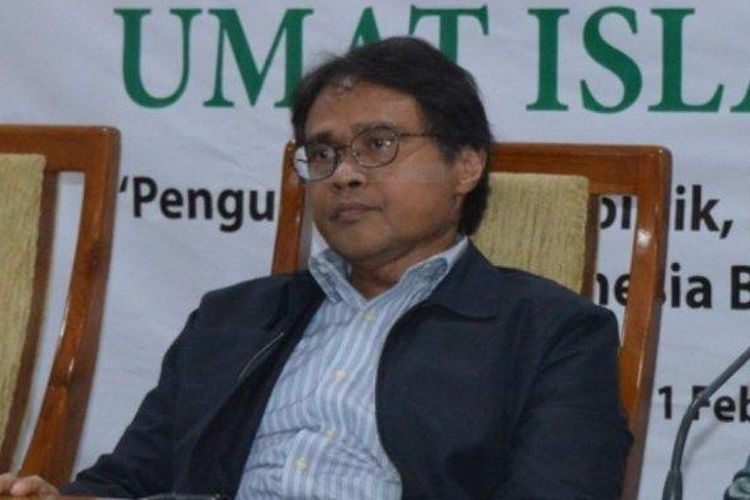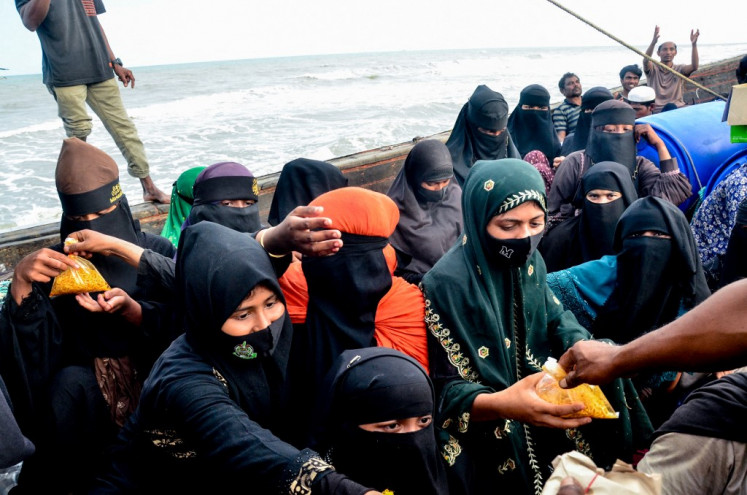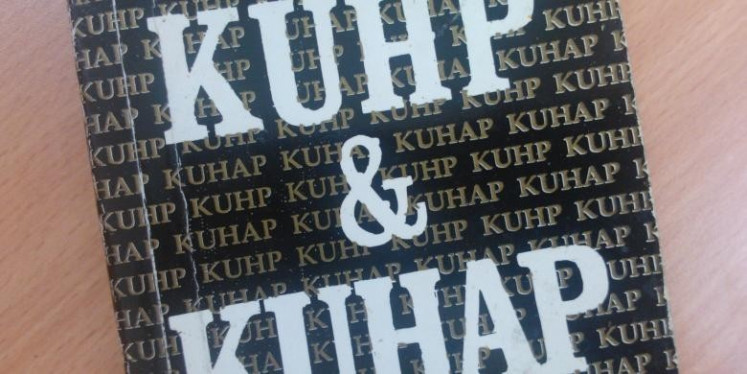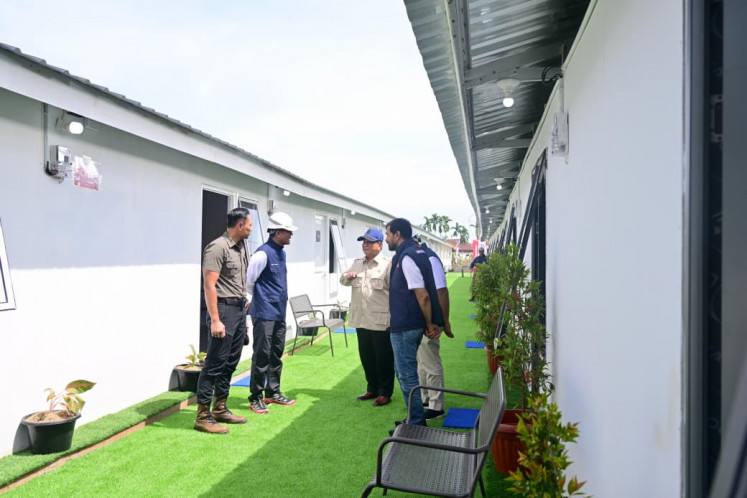Popular Reads
Top Results
Can't find what you're looking for?
View all search resultsPopular Reads
Top Results
Can't find what you're looking for?
View all search resultsBahtiar Effendy: Muslim public intellectual, champion of democracy
Other than being a bona fide scholar, Bahtiar was a public intellectual, one who continued to engage in the debate over the issue of Islam and politics.
Change text size
Gift Premium Articles
to Anyone
F
rom the outpouring of tributes and eulogies for departed Muslim scholar Bahtiar Effendy, we know he has secured a spot in the pantheon of intellectuals who have made a great contribution to the country.
Other than being a bona fide scholar, Bahtiar was a public intellectual, one who continued to engage in the debate over the issue of Islam and politics.
His dissertation, Islam and the State in Indonesia, is considered a classic in the study of Islam, and everyone who reads this work knows Bahtiar came from a different time and place, where scholars and public intellectuals tackled society’s biggest problems head-on. For Bahtiar, the great, perennial question was whether Islam had a place in politics and what its relationship was with the modern nation-state.
This was a time when scholars and analysts were still concerned with big ideas, discourse and political theory — before the arrival of the trend requiring political science students to crunch numbers, measure public opinion and compute voter preferences using mathematics.
Bahtiar continued on the trail blazed by the giants of Indonesia’s Muslim intellectual life: Deliar Noer, Noercholish Madjid and Sjafii Ma’arif, who posed vexing questions about the relationship between the state and religion.
But while his predecessors opted for a more descriptive approach, Bahtiar was more clinical and methodical, and certainly more scientific. His training at American universities, first at Ohio University and then Ohio State University certainly provided him with some of the tools.
As a practicing Muslim (and a devout one), Bahtiar was not at all concerned with treating Islam as an object of abstract scientific study. He explored the complexities and contradictions of Islam as an institution.
This is how he began his seminal work, Islam and the State in Indonesia: “To say that Islam deals with spiritual life, with no interference in society and the state, may be as far from reality as saying that Islam provides a comprehensive and detailed social, economic and political system.” This is a quote from Egyptian scholar Fathi Osman, which perfectly represents Bahtiar’s point of view toward Islam, and his work was an attempt to bridge the gap between those two extremes.
Rejecting one-way determinism, Bahtiar concluded that the “relationship between Islam and the nation-state does not stem from the doctrines of Islam per se but derives from the way Islam is articulated socio-culturally, economically and politically”.
Bahtiar’s encounters with the West allowed him to become a champion of democracy, a mode of governance that became his preoccupation soon after the downfall of the New Order regime.
And as a champion of the idea that a non-textual understanding of Islamic teachings could help promote democracy, Bahtiar grew alarmed with the introduction of sharia-inspired bylaws issued by local governments during the post-reform era.
In his later years, Bahtiar was a persistent advocate for democracy in Indonesia, writing books and articles on the relationship between Islam, democracy and religious pluralism.
In an interview soon after he was appointed professor of political science at the Syarif Hidayatullah Islamic State University (UIN Syarif Hidayatullah) in 2009, Bahtiar said that although Indonesia already had the basic prerequisites to build a resilient and sustainable government through democracy, “we are still missing some other sociocultural, economic and political prerequisites to reach a reasonably decent and working democracy.”
While some of his contemporaries, figures like Amien Rais, Din Syamsudin and even the late Nurcholish decided to engage in politics — partly motivated by the desire to improve the quality of the country’s democracy — Bahtiar, ever a self-effacing figure with a wicked sense of humor, made it his priority to stay away from politics.
“Being inside politics is not my cup of tea […] there’s no significant role that academics can play inside,” he said in an interview with The Jakarta Post.
Bahtiar opted to stay in academia and continued engaging in public discussions. He wrote for numerous media outlets, defending the rights of minority faiths and promoting pluralism.
Bahtiar’s commitment to scientific pursuit led him to fight for the establishment of the Faculty of Social and Political Science at UIN Syarif Hidayatullah. He served as its dean from its establishment in 2009 to 2013 and was highly respected by members of the faculty.
To ensure the new school could live up to international standards, he hired top talent to join the faculty and encouraged intellectual debate. He was insistent that the faculty should have an international program where English was the language of instruction. (I joined the International Relations Department in 2011 as a member of the teaching staff.)
Even when he decided to take up a job at an organization that could be considered political, such as Muhammadiyah, Bahtiar chose one that had little to do with national politics. He served as head of Muhammadiyah’s international relations department until his passing on Thursday.
It was his friendship with fellow Muslim scholar Din which led Bahtiar, who grew up in a Nahdlatul Ulama family, to join Muhammadiyah. Din served as Muhammadiyah chairman between 2005 and 2015.
During his time at Muhammadiyah, Bahtiar expressed his disapproval whenever he sensed efforts to drag the organization into politics.
“Bahtiar Effendy was a true intellectual. He was a reader and a writer,” Din said in his eulogy.










